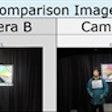In January, the United States Supreme Court ruled in U.S. v. Jones that law enforcement personnel must obtain a search warrant prior to installing a GPS unit or similar tracking device on a vehicle.
In this case, the court majority concluded that "the government's attachment of a GPS device to a vehicle, and its use of that device to monitor the vehicle's movements, constitutes a search under the Fourth Amendment." As such, any use of a GPS tracker without a search warrant from a judge violates the constitutional rights of the driver and by extension, the rights of any passengers in the vehicle.
Previous case law included Arizona v. Gant, which limited the scope of a vehicle search incident to the arrest of the driver, and Miranda v. Arizona, which required that suspects be advised of their right to remain silent and the right to counsel prior to questioning. The Jones decision will also affect the investigative process, perhaps most significantly in the counter-drug arena since these cases tend to utilize GPS units and tracking devices at a greater frequency that other types of investigations.
Although a search warrant authorizing the legal installation of a GPS device on a vehicle is now required per Jones, there are exceptions to this ruling, just as there are exceptions under Gant and Miranda. Perhaps the most common exception to Jones falls under consent. The owner, non-owner or any other individual who demonstrates joint access or control of the vehicle can grant consent to officers to install a GPS unit on a vehicle. Under the consent exception, reasonable suspicion or probable cause of criminal activity is not necessary.
Another common exception under Jones involves vehicles entering the U.S. at a port of entry along the international border. Federal agents, not state or local officials, can install a tracking device on a vehicle that just entered the U.S. from another country (such as Canada or Mexico) and can monitor the vehicle for 48 hours without a search warrant or reasonable suspicion. The 48-hour time frame, according to the U.S. Department of Justice, is defensible under the Fourth Amendment rather than being based on any constitutional precedent. However, if monitoring via GPS exceeds 48 hours, it's suggested that case agents obtain a search warrant.
Jones also contains a public safety exception. If law enforcement officials can articulate a serious and imminent threat to life or the general public, and that the tracking of a vehicle is essential to guard against that threat, then it is not necessary to have a search warrant for the installation of a tracking device. Only reasonable suspicion, and not probable cause, is required under this exception.
In addition to the exceptions listed above, exigent circumstances may exist that override the need for a search warrant. Examples that meet this criteria include imminent destruction or loss of evidence, imminent flight of a suspect, or a threat to the safety of officers or to a member of the public. However, probable cause and not mere suspicion must be present under the exigent circumstance exception.
There are also exceptions to the search warrant requirement for GPS devices installed on airplanes, rental cars, commercial vehicles and even for tracking vehicles abroad. These exceptions are less common than those previously mentioned; it's important to know that exceptions exist for most situations that law enforcement officials may encounter. Therefore, it is essential that investigators who anticipate using a tracking device first familiarize themselves with the exact requirements for each type of conveyance in which a GPS unit might be installed.
Because operational concerns and the specifics of each investigation will vary significantly from case to case, you should contact your respective departmental counsel, deputy district attorney or assistant U.S. attorney in your particular jurisdiction for additional guidance.
Robert Von Kaenel is a special agent with the Drug Enforcement Administration. He is a field training agent and defensive tactics instructor.
Related:












